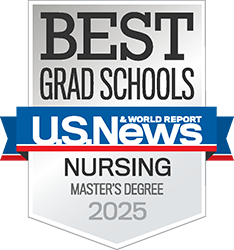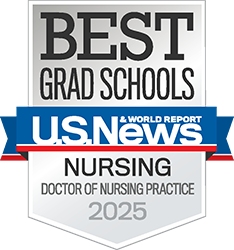Scientific editor makes words work for nursing faculty

Markeda Wade proudly calls herself a “word nerd,” and faculty at Cizik School of Nursing at UTHealth Houston benefit daily from her love of language.
A full-time scientific editor like Wade is a rarity in nursing schools. Her services are available to all faculty who need help refining and polishing grant proposals, research articles, posters, and other materials.
“Lots of people think of an editor as someone with glasses down on their nose, with a red pen marking typos,” Wade said. “What I do is on a more substantive level.”
English comes naturally to Wade, who in high school proofread graduate-level papers for friends. She found jobs at newspapers while working toward her bachelor’s degree in English from The University of Southern Mississippi, where she later worked as the university proofreader. Wade moved to Texas in 2005, first as director of communications for the University of Houston-Victoria and later on the institution’s Houston campus as a writer in the stewardship office.
She later moved on to The University of Texas MD Anderson Cancer Center. Her job there presented a unique opportunity to work with a team of more than 20 scientific editors, whose educational backgrounds ranged from the Russian language to astrophysics.
“I don’t have a degree in science, but I figured out that I didn’t necessarily have to know the science. I had to know when things didn’t make sense,” Wade said. “You don’t have to have all the answers, but you do need to know how and when to ask questions.”
Wade went on to gain certification from the Board of Editors in the Life Sciences (ELS). She is also an active member of the American Medical Writers Association.
When PhD Program Director Geri L. Wood, PhD, RN, FAAN, transitioned from MD Anderson to Cizik School of Nursing, she advocated for the creation of a scientific editor position within the Department of Research and hired Wade in 2015. Continuously learning new things about health and science, especially when they are relevant to herself or a family member, is one perk of editing for the nursing school, Wade said.
Her biggest challenge is helping researchers who are completely immersed in a very specific topic translate their work for a broader audience. Her most rewarding experiences occur when a faculty member she has worked with closely receives a grant or publishes or presents their research.
“I’m not directly involved in the research, but I do feel like I am in some small way contributing to advancing knowledge,” Wade said.



